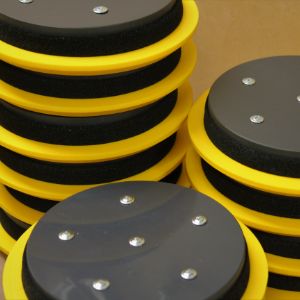Why OSHA Recommends Floor Hole Covers In Construction
Safety on construction sites is a paramount concern, not just for the workers but also for the managers and stakeholders involved in these projects. One critical aspect of maintaining safety is the prevention of falls through holes in the floor, a serious hazard that can lead to injuries or worse.
The Occupational Safety and Health Administration (OSHA) provides guidelines and regulations specifically addressing this risk, emphasizing the importance of using floor hole covers. Let’s look at why implementing OSHA-compliant floor hole covers is essential for construction sites, enhancing safety, and ensuring compliance with regulations.
Importance Of Floor Hole Covers In Construction
Floor holes on construction sites present significant risks to workers, including the danger of falls, which are among the leading causes of fatalities in the industry.
A floor hole, as defined by OSHA, is an opening measuring less than 12 inches but more than 1 inch in its least dimension on any working surface. Uncovered or inadequately secured floor holes can lead to accidents ranging from minor injuries to fatal falls.
Understanding OSHA Requirements
OSHA’s regulations mandate that all floor holes through which a person could accidentally walk must be guarded by either a standard railing with a toeboard or a floor hole cover. These requirements are specified to provide necessary fall protection to workers.
Compliance with these standards not only enhances safety but also helps avoid potential legal and financial repercussions owing to workplace accidents.
Benefits Of Using OSHA-Compliant Hole Covers
- Prevents Accidents: Securely covering floor holes reduces the risk of falls and related injuries or fatalities.
- Enhances Productivity: Workers feel safer and are more productive when they know that proper safety measures are in place.
- Improves Worksite Organization: Using hole covers helps maintain a tidier and more organized construction site by marking hazardous areas clearly.
- Fosters A Culture Of Safety: Demonstrating compliance with safety regulations reinforces a safety-first mindset among the workforce.
Types Of Floor Hole Covers
The selection of the right type of floor hole cover depends on various factors such as the size of the hole, the traffic it may bear, and the environmental conditions at the site. Regardless of the type, they should be clearly labeled with a recognizable color.
Installation & Maintenance Of Hole Covers
Proper installation and maintenance are crucial to ensure that the floor hole covers perform their function effectively. Installation should follow the manufacturer’s guidelines, ensuring that the covers fit snugly and securely without any gaps. Regular inspections should be conducted to check for signs of damage or wear, and any compromised covers should be replaced immediately.
Enhancing Risk Management Through Effective Use of Hole Covers
The use of OSHA-compliant floor hole covers is a critical component of risk management on construction sites. Effective management of these risks leads to safer working conditions and significant improvements in overall site safety.
FAQs
What Constitutes A Floor Hole Under OSHA Regulations?
A floor hole is an opening between 1 inch and 12 inches in its smallest dimension on any walking or working surface.
Are There Specific Materials Recommended For Floor Hole Covers?
OSHA does not specify materials, but the covers must be capable of supporting twice the weight of employees, equipment, and materials that may be imposed on any one area simultaneously.
How Often Should Floor Hole Covers Be Inspected?
Regular inspections should be carried out at intervals appropriate to the project's conditions and following any incident that could compromise the cover's integrity.
Commit To Safety With SmartGuard
Investing in high-quality, industry-standard hole covers like those offered by SmartGuard ensures compliance with OSHA regulations and affirms your commitment to providing a safe working environment.
Ensure the safety of your workforce and enhance the efficiency of your operations by choosing the right partners in construction site safety improvement and accident prevention. Let SmartGuard help you elevate your standards of protection and compliance across your projects in the United States.

